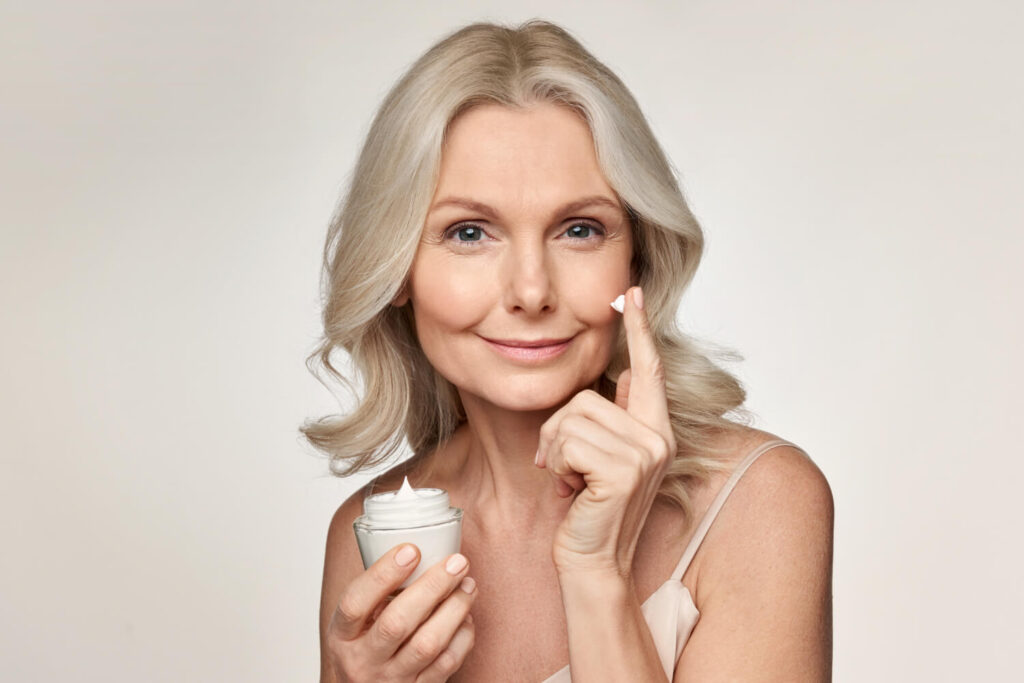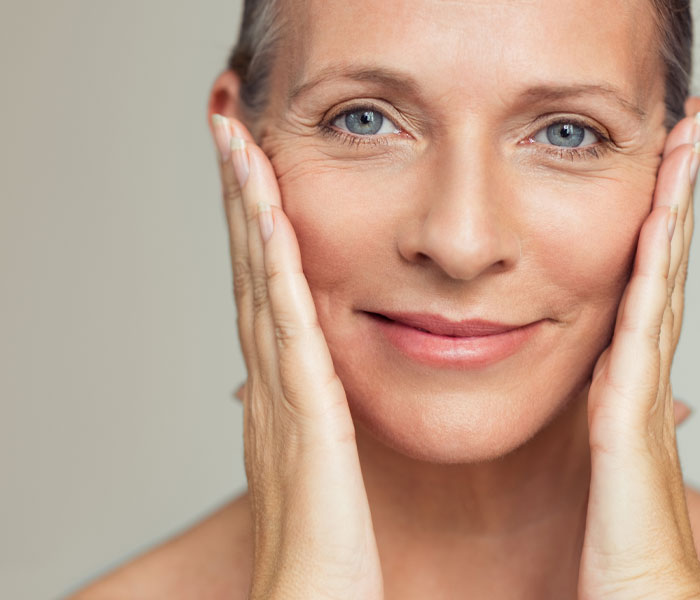
A new pilot study shows how a novel peptide targets the root causes of skin aging—offering more than just surface-level beauty
When it comes to skin health, most conversations center around what we see: fine lines, wrinkles, uneven tone, and loss of elasticity. And for decades, the solutions have focused on surface-level fixes—moisturizers, exfoliants, retinols, and sunscreens.
But beneath these visible signs lies a deeper story: the biological aging of the skin itself, a process driven by cellular damage, inflammation, and a gradual decline in the skin’s ability to repair and renew. It’s this process—called skin biological age—that scientists now believe may hold the key to lasting skin health and rejuvenation.
A new pilot study suggests that a novel compound known as OS-01 peptide may offer a promising approach to slowing this deeper layer of skin aging. Rather than simply smoothing the surface, it appears to support the cellular mechanisms that keep skin youthful and resilient.
Let’s explore how this study was conducted, what makes OS-01 unique, and how this peptide fits into the future of science-backed skin longevity.
The Shift Toward Biological Age in Skin Health

Traditionally, skincare has targeted visible signs of aging. But more recently, scientists and longevity experts have turned their attention to biological age—the molecular and cellular state of a tissue, which can be older or younger than your chronological age.
In the skin, biological age is influenced by:
- DNA damage from UV exposure and pollutants
- Accumulation of senescent (non-functioning) cells
- Breakdown of collagen and elastin
- Declining stem cell function and repair capacity
This biological aging manifests externally as sagging, dryness, and wrinkles—but it starts deep within. By measuring and targeting these deeper processes, we move from cosmetics to regenerative skincare—aiming not just for appearance, but true cellular renewal.
Introducing OS-01: A Topical Peptide with Cellular Ambition
The OS-01 peptide is a proprietary, lab-designed molecule developed by OneSkin, a longevity-focused biotech company. Unlike traditional skincare peptides that stimulate collagen production or hydration, OS-01 was developed to address senescence and molecular damage—two key drivers of biological skin aging.
Peptides, in general, are short chains of amino acids that can signal cells to perform specific functions. OS-01 was screened and selected through a multi-step testing platform, evaluating:
- Its ability to reduce markers of cellular senescence
- Its effect on DNA repair genes
- Its impact on inflammatory signaling
- Its role in restoring skin tissue structure
What makes OS-01 stand out is its scientific rigor. The company conducted extensive in vitro (lab dish), ex vivo (skin explants), and now in vivo (human) testing to validate its claims.
The Pilot Study: Real People, Real Skin, Real Change
In a recent pilot study, OneSkin tested the OS-01 peptide in a topical formulation on human volunteers over a 12-week period.
Study design highlights:
- Participants applied OS-01 daily to the dorsal forearm, an area prone to visible aging.
- Skin samples were collected before and after the study for detailed analysis.
- Biological age of the skin was measured using DNA methylation markers—a highly regarded method for estimating epigenetic age.
- Secondary markers included hydration, elasticity, and other clinical dermatological parameters.
Key findings:
- Biological age of the skin was significantly reduced in areas treated with OS-01, suggesting a reversal of molecular aging markers.
- OS-01-treated skin also showed improved hydration and structural integrity.
- No adverse effects or irritation were reported, indicating good tolerability.
In simple terms: participants’ skin looked and functioned younger—not just cosmetically, but biologically.
Understanding How OS-01 Works
The peptide appears to act on several interconnected aging pathways:
1. Reduces Cellular Senescence
Senescent cells are damaged, non-dividing cells that linger in tissues and secrete pro-inflammatory compounds. They’re a hallmark of aging in all tissues, including skin. OS-01 appears to reduce markers of senescence, helping restore healthier cell populations.
2. Enhances DNA Repair
OS-01 was shown in earlier lab studies to upregulate genes involved in repairing DNA damage, which accumulates over time from UV light and pollution.
3. Improves Skin Barrier and Structure
The skin’s outermost layer (the stratum corneum) becomes less effective with age. OS-01 helped restore gene expression patterns associated with barrier function, hydration, and collagen remodeling.
This multi-pronged action makes OS-01 one of the first topical peptides to be validated at the cellular, molecular, and tissue levels for skin aging reversal.
Why This Matters for Longevity, Not Just Beauty
This isn’t just about vanity. The skin is your largest organ—and its aging reflects and affects your whole-body health.
Aged skin is more vulnerable to:
- Infection and inflammation
- Environmental toxins and allergens
- Impaired wound healing
- UV-induced skin cancers
By maintaining younger, healthier skin at the cellular level, we may be doing more than preserving appearance—we may be supporting immune resilience, barrier function, and systemic well-being.
Furthermore, skin is one of the few tissues where anti-aging interventions can be monitored non-invasively. It becomes a testing ground for longevity science—offering clues for what may work in other tissues like muscle, brain, and heart.
How OS-01 Compares to Traditional Skincare
Most anti-aging skincare falls into a few categories:
- Hydrators and emollients (e.g., hyaluronic acid)
- Exfoliants (e.g., alpha hydroxy acids)
- Retinoids (vitamin A derivatives)
- Antioxidants (vitamin C, resveratrol)
These ingredients work well for surface-level improvement—plumping the skin, evening tone, and boosting glow. But few, if any, are shown to reverse biological age markers in the skin.
OS-01 represents a new category: skin longevity molecules—active compounds that target the molecular root causes of skin aging, not just its symptoms.
Where the Research Goes From Here
While the pilot study results are promising, more research is needed:
- Larger clinical trials with diverse age groups and skin types
- Long-term studies to assess durability of biological age reversal
- Exploration of combination protocols (e.g., OS-01 plus microneedling or red light therapy)
- Investigating benefits in photoaged or damaged skin
Still, this early data places OS-01 at the forefront of a new era of preventive, regenerative skincare—where molecules are judged not by marketing but by measurable, biological impact.
Practical Considerations for the Curious User
If you’re interested in trying OS-01 (marketed as OneSkin’s “Topical Supplement”), here are a few tips:
- Start with a patch test, especially if you have sensitive skin.
- Apply once daily, ideally on clean, dry skin after cleansing.
- Combine with sunscreen and basic skincare; avoid layering too many actives.
- Track visible and tactile changes over 12 weeks—and note any subjective shifts in texture, hydration, and radiance.
More importantly, remember that skincare works best as part of a lifestyle that supports longevity at every level—nutrition, sleep, movement, and stress regulation all impact the skin’s biology.
Final Thoughts: The Skin as a Mirror of Cellular Health
This study reminds us that aging isn’t just about what we see in the mirror. It’s a deeply cellular process, one that we’re only beginning to understand—and influence—with precision.
The OS-01 peptide doesn’t promise magic. But it does represent a shift in how we care for our skin: from cosmetic enhancement to cellular stewardship. It’s not about chasing youth—it’s about investing in the cellular processes that keep skin strong, resilient, and biologically young.
And in doing so, we may just be learning how to age—not just more beautifully, but more intelligently, vibrantly, and confidently.
